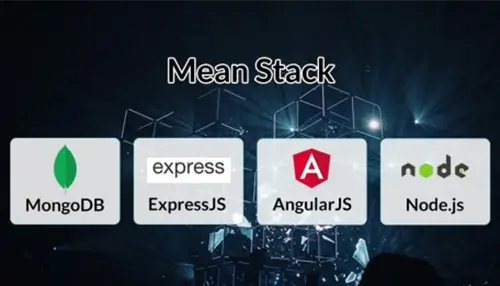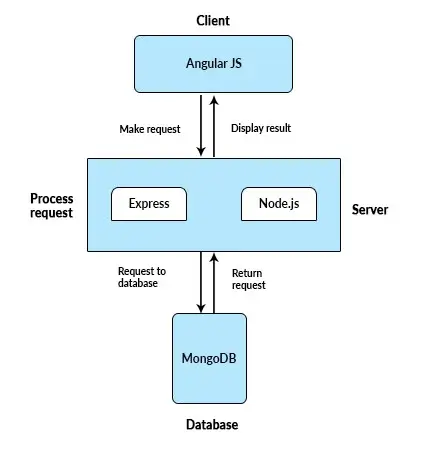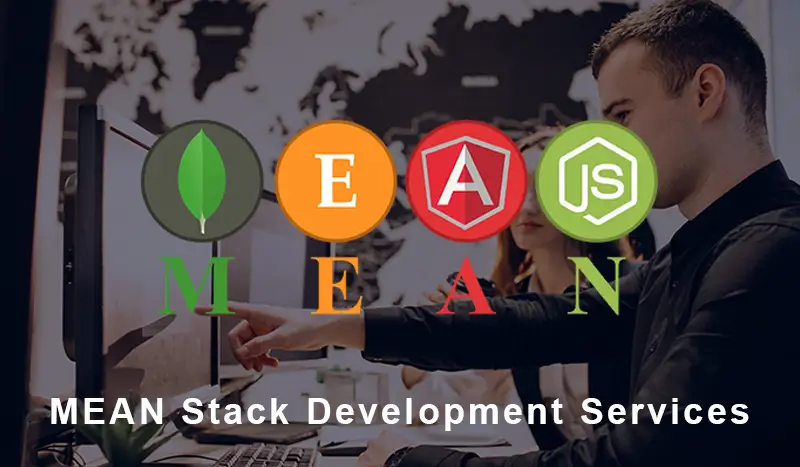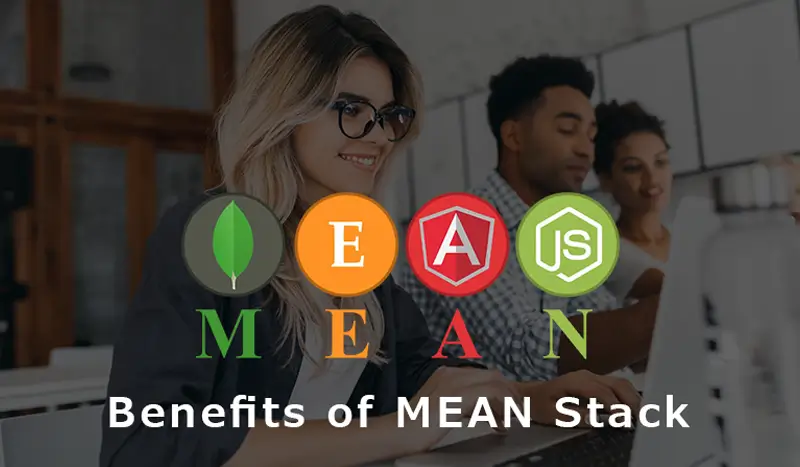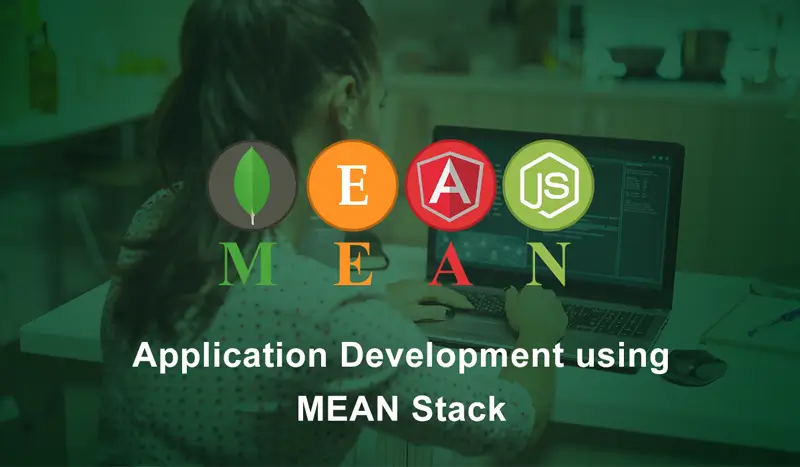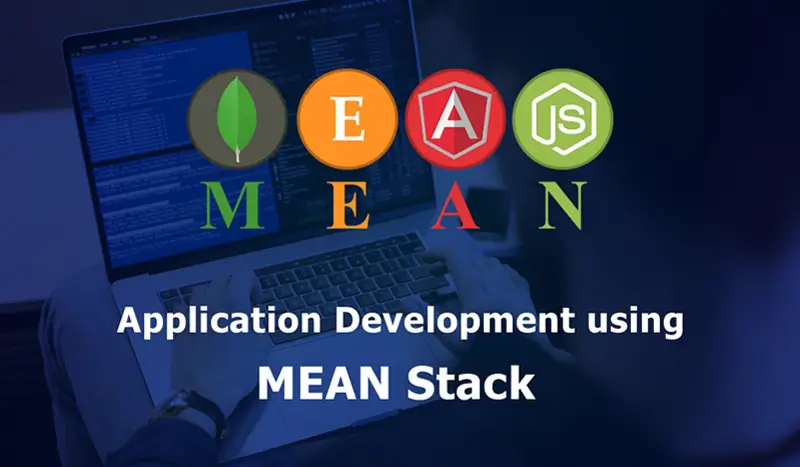When building an application from scratch, employing a standardized, consistent software stack is vital. Creating your back-end with a set of tools designed to work together streamlines resources and minimizes development time.
However, the stack field is getting crowded. From MEAN to Ruby on Rails, there are several options. Each stack has its own benefit and downside and is geared for different projects. There’s no one-size-fits-all stack for development.
What is MEAN Stack?
The term MEAN Stack refers to a collection of JavaScript-based technologies that are used to build dynamic websites and applications. MEAN is an acronym for MongoDB, ExpressJS, AngularJS, and Node.js. MEAN is full stack JavaScript, from the client to the server to the database.
Though often compared to the LAMP stack, the software components of the MEAN stack are at par that includes a web application presentation layer and not an operating system layer.
USE CASES
There are many applications where the usage of MEAN Stack excels. It is an excellent choice for building cloud-native applications owing to its ability and scalability for managing concurrent users. The AngularJS front-end framework makes it ideal to develop single-page applications that serve all functionality and information on a single page.
Here are a few examples of using MEAN:
- Expense tracking
- Mapping and location finding
- News aggregation sites
- Calendars
MEAN STACK TECHNOLOGIES / SOFTWARE COMPONENTS
- MongoDB
- Express
- AngularJS
- Node.js
It is an open-source, NoSQL database for cloud applications using object-oriented organization. MongoDB stores the application’s data in the MEAN stack. The application can push and pull objects between the database and the back-end without missing a beat.
MongoDB is touted for its scalability in both performance and storage. You do not need to reload the entire table to add fields to the database. MongoDB is well-known for managing large amounts of data without compromising on data access. You can expand the resources available to your database with just a few clicks, making it perfect for applications with occasional periods of increased activity.
Express is a web application framework for Node.js. It balances a full feature set and ease of use. Express ensures a smooth transfer of data to the end-user by handling all the interactions between the frontend and the database. It is designed to be used with Node.JS and has consistent usage of JavaScript throughout the stack.
Express is designed efficiently to handle processes without cluttering your application. It offers excellent templating functionality and error handling to aid your development.
Express prevents accidental overwriting of variables within the shared namespace using the CommonJS module standard. This JavaScript closure enforcement prevents costly and time-consuming errors.
Google’s JavaScript front-end framework is exceedingly popular. It is an effective default for front-end JavaScript development. You can use AngularJS if you are developing a web application in JavaScript.
AngularJS helps developers build the user-facing side of the application. As the front-end, back-end, and database are all built on JavaScript, there is a proper flow of information between all parts of your web application.
The reason for its popularity is its ability to simultaneously develop for mobile and desktop use, ease of using templates, and well-tuned performance, making it an ideal front-end to build cloud-native applications.
Node.js is an open-source JavaScript framework. It uses asynchronous events to process multiple connections simultaneously. It is considered to be an ideal framework for cloud-based applications, as it can effortlessly scale requests on demand. Most well-known web presence has Node.js behind.
Node.js is the backbone of the MEAN stack. Express works on top of Node.js, and AngularJS connects seamlessly to Node.js for quick data serving. Node.js has a fully-integrated web server that makes deploying MongoDB database and application to the cloud.
Scalability is the greatest strength of Node.js. It can support as many as a million simultaneous connections. Node.js can work best with many low-resource requests as opposed to resource-intensive requests.
MEAN Stack Architecture
Find out how the MEAN development stack (MongoDB, ExpressJS, AngularJS, NodeJS) changes the architecture and semantics of building a web application. Working procedure of MEAN stack is explained properly in the figure below.
MEAN Stack Architecture Explanation
1. Any request made by the client first gets processed by the AngularJS. AngularJS is the client-side language in Javascript.
2. The request then enters phase 2, 2hich is NodeJS. NodeJS is the server-side language in Javascript.
3. ExpressJS is phase 3 that makes request to the database.
4. In phase 4, MongoDB retrieves the data and returns the response back to the ExpressJS.
5. In phase 5, ExpressJS then sends the response back to the NodeJS and then NodeJS forwards it to AngularJS to display the result.
MEAN STACK SERVICE OFFERINGS
The MEAN STACK is highly recommended in future programming with Full-stack JavaScript development where technology drives easier and faster way to build feature-rich web applications. The MEAN Stack is simpler, reliable, and flexible for the dynamic website and mobile applications. The simpler, yet robust structure of MEAN STACK delivers a well-ordered mechanism for transformation of data. Hence, the structure of MEAN STACK is more suitable and well defined in order to maintain the dynamic performance of the website and mobile app. We have a very strong and highly experienced team at Oditek with expertise in web and app development services, specially utilizing MEAN Stack. Leveraging JavaScript expertise, we believe your web or mobile application development should accomplish the goals and enable you to stay ahead of the rest.
a. Scalable web applications on Cloud
b. Real-Time-Communication product development based on WebRTC (please refer our skills on WebRTC- https://www.oditeksolutions.com/skills/webrtc-for-telecoms/)
c. Enterprise-grade Web application development using MEAN Stack
d. E-Commerce Development using MEAN Stack
e. MEAN Stack CMS development
f. Migration & Porting to MEAN Stack
g. API development & integration
OUR SKILLS MATRIX
Our MEAN Stack developers are proficient in different platforms & worked on a variety of business verticals to deploy robust, scalable applications. Our extensive experience with MEAN Stack development services allows us to quickly craft bespoke solutions for large enterprises and startups.
TOOLS & TECHNOLOGIES
- MongoDB for Storage
Refer our skills on MongoDB – https://www.oditeksolutions.com/skills/mongodb/ - ExpressJS for Web programming
Refer our skills on ExpressJS – https://www.oditeksolutions.com/skills/express-js/ - AngularJS for front-end development
Refer our skills on AngularJS – https://www.oditeksolutions.com/skills/angular-js/ - NodeJS for Web Server
Refer our skills on NodeJS – https://www.oditeksolutions.com/skills/nodejs/

